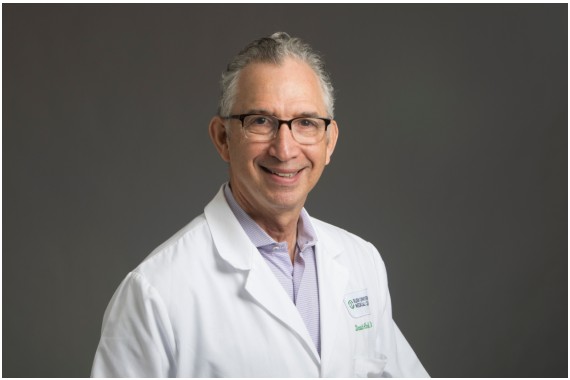
As Rush's first leader of health equity, a role he assumed in 2016, David Ansell leads RUSH’s strategy to be a catalyst for community health and economic vitality on Chicago’s West Side. He previously was Rush’s senior vice president, system integration. Ansell joined Rush in 2005 as the Medical Center’s first chief medical officer — a position he held until 2014 — as well as the associate dean and senior vice president for clinical affairs and the Michael E. Kelly MD Presidential Professor at Rush Medical College.
While Ansell was CMO, Rush was consistently ranked among the top-performing academic medical centers in the United States in quality and safety. He also served on the inaugural system board of the Cook County Health and Hospital System and served on several national committees within the CMO group of the Association of Academic Medical Centers.
In 2002, during his 10-year tenure as chairperson of the Department of Internal Medicine at Chicago’s Mount Sinai Hospital, Ansell founded the Sinai Urban Health Institute, which conducts health equity research, develops innovative community health interventions, delivers community health worker training and consultation, and provides a broad scope of evaluation services.
After joining Rush, Ansell helped establish, in 2007, the not-for-profit Metropolitan Chicago Breast Cancer Taskforce (now Equal Hope), which focuses on ameliorating the higher breast cancer mortality rate among Black women. He currently is the emeritus chair of the taskforce's board.
He also contributed to the 2015 creation of the Center for Community Health Equity — a Chicago-based educational and research center jointly run by Rush University and DePaul University. In 2018, Ansell was the Rush leader responsible for the launching of West Side United, a racial health equity collaborative partnering hospitals and community leaders to eliminate the life expectancy gap on Chicago’s West Side. In 2021 he contributed to the creation of the RUSH BMO Institute for Health Equity.
Ansell completed his internal medicine residency and chief residency at Cook County Hospital in Chicago. From 1978 to 1995, Ansell spent 17 years at Cook County Hospital, where he implemented one of the first breast and cervical cancer screening programs in the United States. From 1993 to 1995, he served as the hospital’s division chief of general medicine and primary care.
Ansell recounted his experiences at Cook County Hospital in his critically acclaimed 2011 memoir, "County: Life, Death and Politics at Chicago’s Public Hospital." The University of Chicago Press published his second book, "The Death Gap: How Inequality Kills," in 2017.
As a co-author of a study in The New England Journal of Medicine, and through his testimony before the U.S. Congress, Ansell influenced the passage of the Emergency Medical Treatment and Active Labor Act in 1986 — a federal law that regulates the transfer of patients from one hospital to another. He also is the author of numerous other papers and book chapters on health disparities.
Ansell earned a bachelor's degree from Franklin and Marshall College in 1974 and his doctoral degree in medicine from SUNY Upstate Medical University in 1978. In 1991, he received a master's degree in public health from the University of Illinois School of Public Health. Ansell was on the board of Rush Oak Park Hospital from 2012-2023, and board chair from 2015 to 2018. He is also serves on the boards of Wellness West, Community Empowerment and the Garfield Park Rite to Wellness Collaborative
